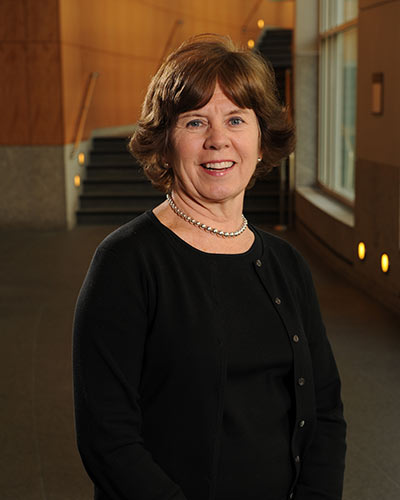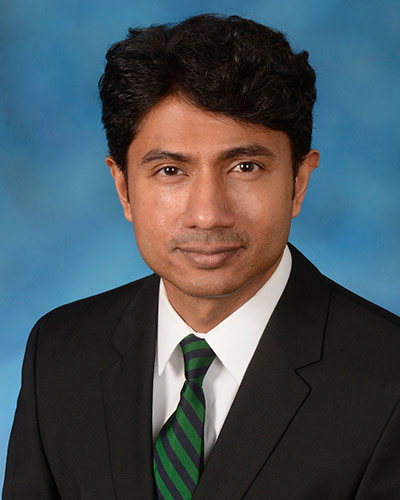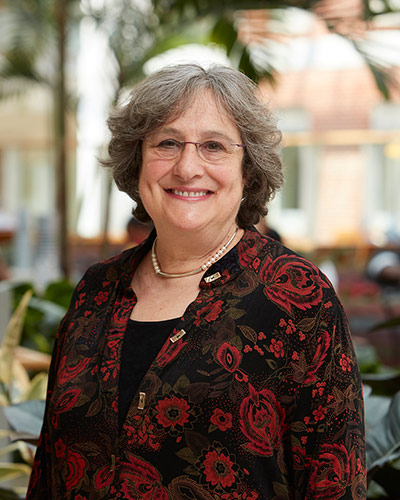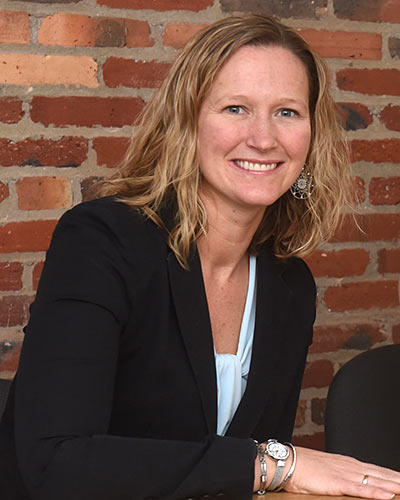January 11, 2018 | Kelly Swan

University of Maryland School of Medicine and School of Nursing Researchers Find Co-Sleeping Increases Stress, Depression and Anxiety for Mothers
For parents of toddlers with sleep problems, co-sleeping may not be a good strategy, according to new research from the University of Maryland School of Medicine (UMSOM) and the University of Maryland School of Nursing (UMSON). Co-sleeping is defined as a parent sleeping in the same room or same bed with their child.
The study, which was published in the Journal of Developmental and Behavioral Pediatrics, involved 277 low-income mothers and children ages 12 to 32 months living in Baltimore. Researchers found that toddlers in low-income families often co-sleep with their parents in the same room or in the same bed. Researchers studied whether co-sleeping affects mothers’ sleep and mental health.
The research showed that mothers who co-sleep with toddlers with perceived sleep problems lost almost one hour of sleep and reported symptoms of stress, depression and anxiety. The mothers of children who did not have perceived sleep problems did not lose sleep or have depressive symptoms, regardless of the sleeping arrangement.
 “Without enough sleep, parents are likely to feel sleepy and irritable, making it difficult to care for an active toddler,” said Maureen M. Black, PhD, the John A. Scholl, MD and Mary Louise Scholl, MD Endowed Professor in Pediatrics at UMSOM and director of the Growth and Nutrition Clinic in the Department of Pediatrics at the University of Maryland Children’s Hospital (UMCH). “Mothers who perceive their child as having a sleep problem and then sleep in the same bed or room with the child as a means of comfort are likely to wake up during the night, get less sleep and report symptoms of stress, anxiety and depression. In principle, these results can be extrapolated to any family with a toddler, as a toddler who awakens and looks for a parent disrupts the parent’s sleep.”
“Without enough sleep, parents are likely to feel sleepy and irritable, making it difficult to care for an active toddler,” said Maureen M. Black, PhD, the John A. Scholl, MD and Mary Louise Scholl, MD Endowed Professor in Pediatrics at UMSOM and director of the Growth and Nutrition Clinic in the Department of Pediatrics at the University of Maryland Children’s Hospital (UMCH). “Mothers who perceive their child as having a sleep problem and then sleep in the same bed or room with the child as a means of comfort are likely to wake up during the night, get less sleep and report symptoms of stress, anxiety and depression. In principle, these results can be extrapolated to any family with a toddler, as a toddler who awakens and looks for a parent disrupts the parent’s sleep.”
The study’s authors are Lauren B. Covington, MS, RN, a pediatric nurse and UMSON PhD candidate; Bridget Armstrong, PhD, MS, UMSOM postdoctoral fellow; and Dr. Black.
Co-sleeping is a common issue in assessing children’s health, particularly during infancy. The American Academy of Pediatrics recommends that parents sleep in the same room with their infants; however, to prevent SIDS, they recommend against sleeping in the same bed. For toddlers, though, there are no sleep guidelines, in spite of the challenges of night awakenings and difficulty going to sleep that are common among this age group as they learn to self-soothe and develop mature sleep patterns.
Parents who co-sleep with their young children often describe disruptions to their sleep as the child awakens or moves around the bed. Many co-sleeping parents express a desire for their child to sleep independently. With that said, family situations often complicate independent sleeping, including limited bed or bedroom space; noise from family activities such as TV or music; and a desire for the child to stay up late because a caregiver works the late shift.
Parents who believe their toddler has a sleep problem should consider looking for an alternative to co-sleeping to help the child learn to self-soothe and go back to sleep without assistance, according to the researchers. A pediatrician can help parents troubleshoot and identify a strategy besides co-sleeping. Pediatricians should be aware of sleep problems in patients and families, as well as how family situations may be contributing.
Adults need between seven and nine hours of sleep per night, according to the National Sleep Foundation. Children need more sleep than adults – toddlers need 11 to 14 hours of sleep per day and preschoolers need 10 to 13 hours.
“This study explores an important yet understudied area of maternal and child health,” said Steven J. Czinn, MD, the Drs. Rouben and Violet Jiji Endowed Professor of Pediatrics and chair of the Department of Pediatrics at the University of Maryland School of Medicine and director of the University of Maryland Children’s Hospital. “Raising a toddler can be challenging, without the added stress of not getting enough sleep. Pediatricians and family medicine practitioners who are aware of how co-sleeping affects mothers’ sleep and mental health, particularly among families with limited space and complex family situations, can help families identify strategies to promote self-soothing and adequate sleep for mothers and their children.”
“This study is an outstanding example of how collaboration among the University of Maryland School of Medicine, School of Nursing and Children’s Hospital enables us to accelerate our pace of discovery and, together, make real progress in caring for our communities,” says UM SOM Dean E. Albert Reece, MD, PhD, MBA, who is also the University Executive Vice President for Medical Affairs and the John Z. and Akiko K. Bowers Distinguished Professor and Dean, University of Maryland School of Medicine.
About the University of Maryland School of Medicine
Commemorating its 210th Anniversary, the University of Maryland School of Medicine was chartered in 1807 as the first public medical school in the United States. It continues today as one of the fastest growing, top-tier biomedical research enterprises in the world -- with 43 academic departments, centers, institutes, and programs; and a faculty of more than 3,000 physicians, scientists, and allied health professionals, including members of the National Academy of Medicine and the National Academy of Sciences, and a distinguished recipient of the Albert E. Lasker Award in Medical Research. With an operating budget of more than $1 billion, the School of Medicine works closely in partnership with the University of Maryland Medical Center and Medical System to provide research-intensive, academic and clinically-based care for more than 1.2 million patients each year. The School has over 2,500 students, residents, and fellows, and nearly $450 million in extramural funding, with most of its academic departments highly ranked among all medical schools in the nation in research funding. As one of the seven professional schools that make up the University of Maryland Baltimore campus, the School of Medicine has a total workforce of nearly 7,000 individuals. The combined School and Medical System (“University of Maryland Medicine”) has an annual budget of nearly $6 billion and an economic impact in excess of $15 billion on the state and local community. The School of Medicine faculty, which ranks as the 8th-highest public medical school in research productivity, is an innovator in translational medicine, with 600 active patents and 24 start-up companies. The School works locally, nationally, and globally, with research and treatment facilities in 36 countries around the world. Visit medschool.umaryland.edu/
About the University of Maryland Children’s Hospital
The University of Maryland Children’s Hospital at the University of Maryland Medical Center is recognized throughout Maryland and the mid-Atlantic region as a resource for critically and chronically ill children. UMCH physicians and staff excel in combining state-of-the-art medicine with family-centered care. More than 100 physicians specialize in understanding how to treat conditions and diseases in children, including congenital heart conditions, asthma, epilepsy and gastrointestinal disorders. The Drs. Rouben and Violet Jiji Neonatal Intensive Care Unit (NICU) provides the highest level of care to the tiniest newborns. To learn more about the University of Maryland Children's Hospital, please visit http://umm.edu/programs/childrens.
About the University of Maryland School of Nursing
The University of Maryland School of Nursing, founded in 1889, is one of the oldest and largest nursing schools in the nation and is ranked among the top 10 nursing schools in the United States. Enrolling more than 1,900 students in its baccalaureate, master’s, and doctoral programs, the School develops leaders who shape the profession of nursing and impact the health care environment.
Contact
Office of Public Affairs
655 West Baltimore Street
Bressler Research Building 14-002
Baltimore, Maryland 21201-1559
Contact Media Relations
(410) 706-5260
Related stories

Friday, December 18, 2020
Low-Income Preschoolers Exposed to Nurturing Care Have Higher IQ Scores During Their Teen Years, Landmark Study Finds
Preschoolers living in impoverished communities who have access to a nurturing home environment have significantly higher intelligence quotient (IQ) scores in adolescence compared to those raised without nurturing care. That is the finding of a new international study conducted by University of Maryland School of Medicine (UMSOM) researchers, which examined data from more than 1,600 children who were followed from birth through their teenage years. Results were published this week in The Lancet Child & Adolescent Health journal.

Thursday, January 30, 2020
UMSOM Pediatric Infectious Disease Experts Sound Alarm Over Risk of Outbreaks in U.S. Border Detention Centers
Over the past year, at least seven children have died from diseases including influenza while being detained by the U.S. Department of Homeland Security’s Customs and Border Protection (CBP) agency. Infectious disease experts at the University of Maryland School of Medicine (UMSOM) called for protections like influenza vaccinations to prevent serious outbreaks.

Monday, May 06, 2019
UM School of Medicine's Dr. Karen Kotloff Receives 2019 Alumni Achievement Award from Temple University
Karen Kotloff, MD, Professor of Pediatrics at the University of Maryland School of Medicine (UMSOM), has received the 2019 Alumni Achievement Award from the Lewis Katz School of Medicine at Temple University.

Thursday, April 12, 2018
Maryland Schools are Doing More to Improve Kids Health, Report Finds
Schools across Maryland are doing more to encourage their students to eat healthy foods and to be physically active, according to a new report by researchers at the University of Maryland School of Medicine.
